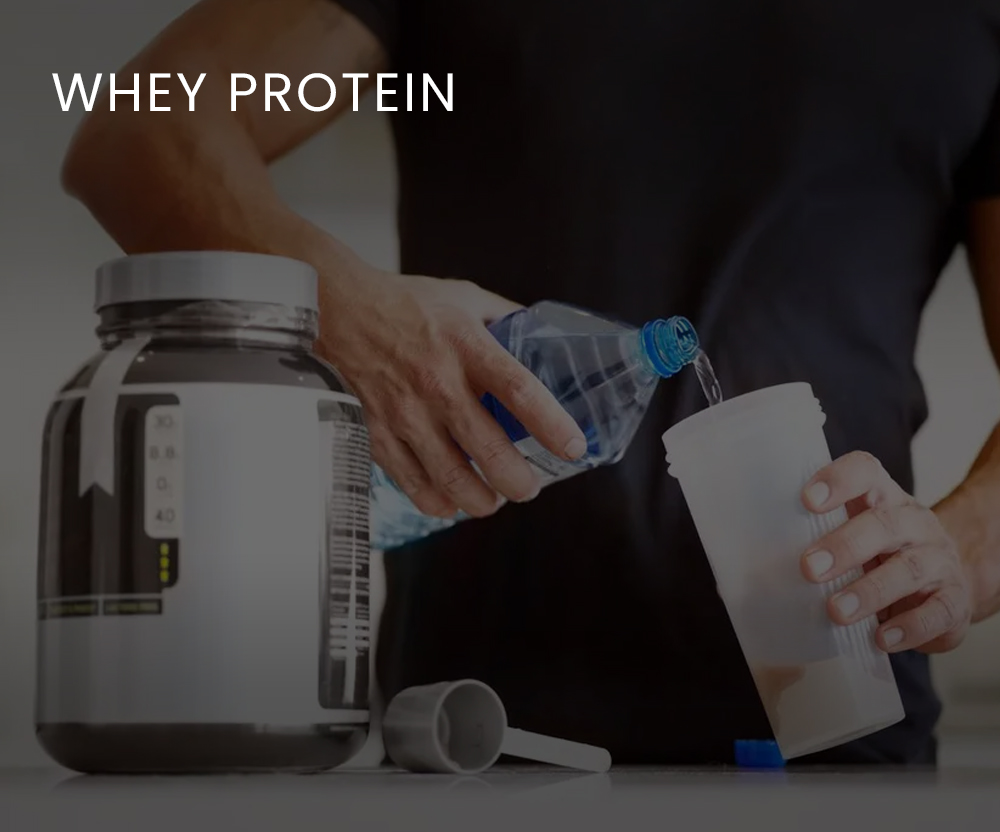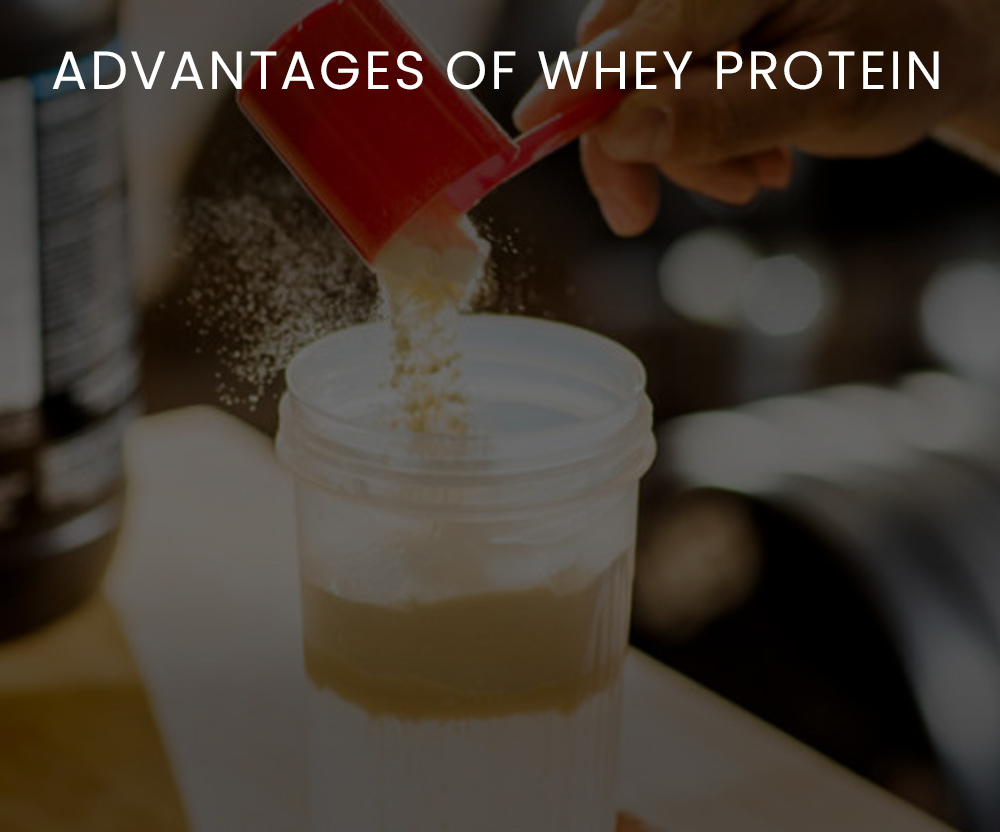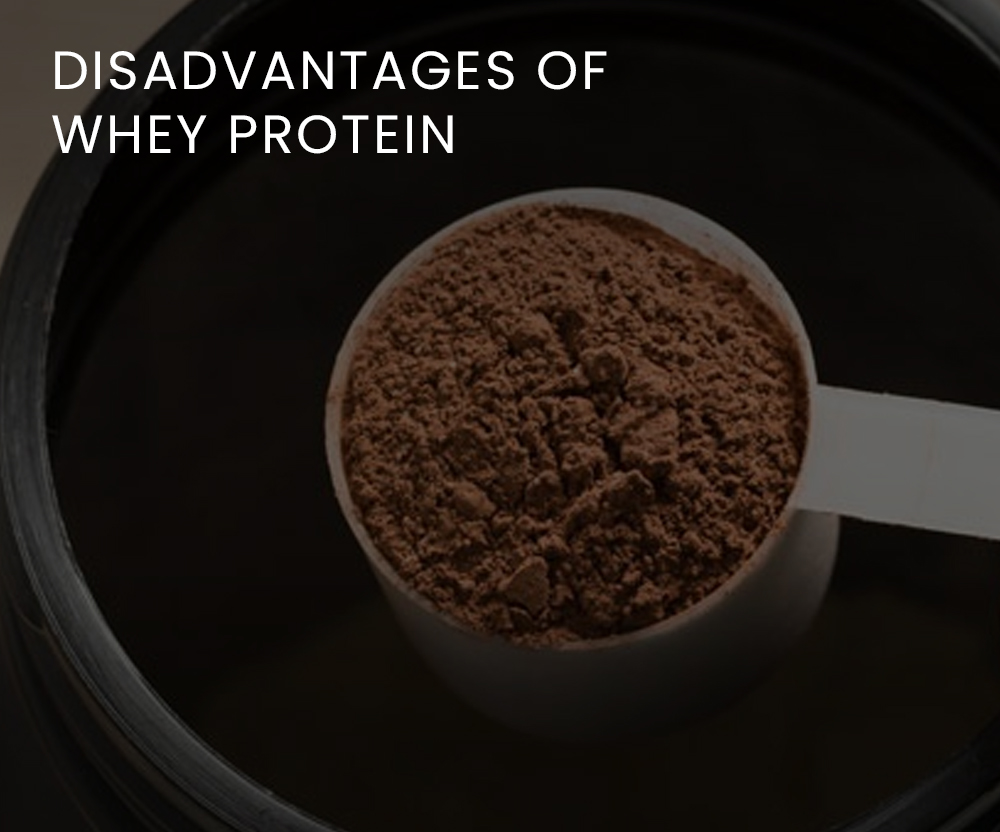A BEGINNER'S GUIDE TO WHEY PROTEIN
WHAT IS WHEY PROTEIN
Whey protein is a by-product of the milk that gets separated during cheese production. This milk contains two types of protein, casein, and whey. After the milk gets separated, it undergoes various stages of processing that become whey protein powder.
This powder contains essential amino acids and BCAA that help build muscle mass, increase strength while promoting weight loss.
Although casein contains 80% of protein and whey contains only 20%, whey is absorbed more quickly than most types of protein.
While the cells in our body are capable of producing amino acids, we get the most out of the food we consume. The amino acids that we get from whey are said to stimulate higher growth in our muscles which is why they are called essential amino acids.
Whey protein is said to be power-packed with all the necessary amino acids including branch-chained amino acids (BCAA), like leucine and cysteine, which are incremental in promoting growth in our body.
Different Types of Whey Protein
There are several types of whey protein and their difference lies in the ways they are processed.
Concentrate: It has about 70-80% protein and contains some lactose, overall being a composition of milk, sugar, and fat. This variant has the best flavour.
Isolate: With over 90% protein, this contains less lactose and fat. However, isolate lacks a lot of the beneficial nutrients generally found in whey protein concentrate.
Hydrolysate: This is also known as hydrolyzed whey. Hydrolysate is a type of whey protein that has been pre-digested so that it can be absorbed faster. It causes a higher spike in insulin levels than the isolate variant.

While the above indicates that whey protein concentrate is the best option, as it retains most of the beneficial nutrients naturally found in whey, some people have issues with tolerance. So if your goal is to take protein-rich supplements while keeping your carbs and fat low, the better option may be whey protein isolate or hydrolysate.
How Do Whey Supplements Affect Your Muscle Mass And Strength?
According to numerous studies, whey contains essential nutrients required to build muscle mass and increase bone strength. Whey protein releases anabolic hormones which are known to stimulate muscle growth. It’s also high in leucine, which is a type of amino acid that’s known to stimulate protein synthesis at a molecular and genetic level. Whey is also absorbed faster than any other protein and is utilized quickly, which is why it’s best consumed right before or after a workout.
GET A FREE QUOTE!
Reach Us
Shop 72 Jupiter CHS Ltd EMP-12 Thakur Village Kandivali East 400101
Phone: +91 9136111844, +91 9920776432
Fill the Form
HOW TO CHOOSE THE RIGHT WHEY PROTEIN POWDER

One of the best ways to choose the right protein powder is by clearly identifying your fitness goals and what supplements will help you achieve them. If your goal is to gain muscles and muscle strength, then whey protein is your best bet.
Whether you’re trying to lose weight or trying to build lean muscles packed with extraordinary strength, it’s crucial to combine your daily religious workout routines with protein supplements.
However, there are several protein powders in the market and it can get overwhelming to find the most suitable one.
It’s important to note that whey protein powder doesn’t taste all that much when there is no flavor. So, choose a supplement that offers a variety of flavored whey protein powder.
Secondly, ensure there aren’t any unhealthy additives or preservatives in your supplement as they may cause more harm than good.
Next, do a calorie check. How many calories does it serve per scoop? Remember the recommended amount of whey protein per day is only 2 scoops max!
Ingredients-check. Aside from additives, make sure you are not allergic to any of the ingredients used in the protein powder. Finally, read the reviews.
The most important thing when it comes to purchasing a product is that you make an informed choice.
ADVANTAGES OF WHEY PROTEIN
There are several health benefits related to whey protein. According to various studies, it has shown better results in promoting growth in humans than any other type of protein. Leucine provides an anabolic hormone responsible for muscle development. Cysteine gives the necessary antioxidants that help mitigate several health issues.
Consuming whey protein cuts your cravings by half
It can boost your energy levels while reducing your calorie intake
When combined with strength or resistance training, it can help you lose weight while building muscle mass
It also helps prevent cancer, improves bone density, and boosts immunity
It reduces blood pressure and blood sugar, stress levels, and depression

DISADVANTAGES OF WHEY PROTEIN

If you’re consuming a high amount of organic meat, fish, eggs, and dairy then you’re unlikely to see any difference while taking whey protein powder.
According to a study, older men who were on a high protein diet, training to gain muscle mass and build strength showed minimal improvement while they used whey protein supplements. But results may vary from one individual to another.
Whey protein is highly beneficial but only in the short term. Casein, however, is more effective in the long term in terms of building and retaining your muscle mass.
Whey protein doesn’t taste like much when it’s unflavoured. This is easy enough to resolve as you may find whey protein in several exciting flavors which you can now buy from our Fitnesometry app (https://fitnesometry.com/).
GET A FREE QUOTE!
PRECAUTIONS TO BE FOLLOWED WHEN CONSUMING WHEY PROTEIN
It’s important to learn how to consume supplements and what precautions need to be taken before incorporating them into your diet. When it comes to whey protein:
Do not take more than 1 or 2 scoops per day, which is around 25 to 50 grams. The best time to consume it is after workouts.
If you’re already on a protein-rich diet, there is no need to add this to your meal plan.
Over-consuming whey protein can cause a whole slew of health issues like nausea, diarrhea, flatulence, pain, and cramping.
Whey protein powder should be avoided if you have any kidney issues as it may cause further harm. However, it doesn’t affect a healthy kidney in any way, especially when you take the recommended dosage.
Some people may be lactose intolerant or even allergic to whey protein. In which case, it’s best to avoid consuming it altogether.
Some whey protein powders available in the market may contain unhealthy additives like refined sugar. So, it’s important to read the label before purchasing.

Whey protein has been extensively studied and continues to be a subject of great interest in the scientific community. This by-product has a lot of health benefits and has shown amazing results in people who are trying to gain muscle and build strength while losing body fat at the same time. Find the whey protein that suits you best on the Fitnesometry app.